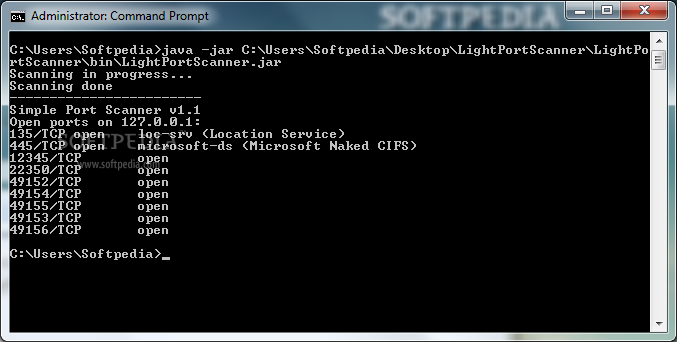Description
Simple Port Scanner
Simple Port Scanner is a free and open-source command-line tool that helps you find open TCP ports quickly. This can be super useful for network admins who need to see which ports are open for making connections on their local computers.
How to Use Simple Port Scanner
The cool thing about this program is that it doesn't require an installation kit. You can just download it and save it wherever you want on your computer, or even stick it on a USB drive. That way, you can run Simple Port Scanner on any PC by just typing its name in the Command Prompt.
Requirements
Just a heads-up: you'll need to have Java Runtime installed because this tool was built using Java. Plus, if you're curious about coding, the source code comes with the downloaded package so you can check it out!
Scanning Ports Made Easy
Once you launch the program from a console window, it starts scanning for open TCP ports right away! You’ll see all the results in a list that shows each port number along with its status. It's straightforward!
No Printing Options?
You might notice there aren't options for printing or saving this info directly to a file. But don't worry! You can still use the Command Prompt features to select all the text and copy it with the Enter key. After that, just paste it into your favorite text editor to take a closer look at those open ports.
Performance Matters
The good news is that Simple Port Scanner didn’t slow down our computers during testing. It uses very little CPU and RAM while running, so it scans ports quickly without causing any crashes or errors.
A Simple Solution for Everyone
Even though Simple Port Scanner doesn’t have tons of fancy features, it's still an easy-to-use option for finding open TCP ports. If you're familiar with console programs, you'll get the hang of it in no time!
If you're ready to try out Simple Port Scanner, head over to SoftPas for more details!
User Reviews for Simple Port Scanner 1
-
for Simple Port Scanner
Simple Port Scanner is a straightforward tool for network admins. Swiftly scans open TCP ports without overloading system resources.

